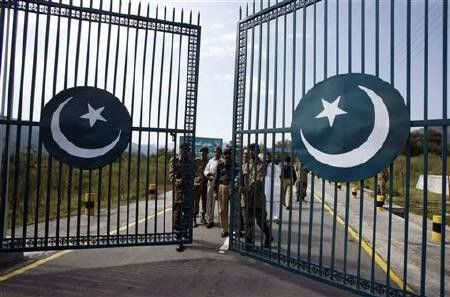Pakistan Relaxes Import Restrictions on Indian Goods

Pakistan removed restrictions on the import of 12 goods from India as part of measures to normalise trade between the nuclear-armed rivals, Pakistani officials said on Saturday.
Pakistan has long been reluctant to open up trade with its neighbor because of long-running political disputes, particularly over Kashmir. But both countries have been trying to boost their trade following a recent thaw in ties. Pakistan's Commerce Ministry recently requested the Economic Coordination Committee (ECC), the top decision-making body on economic affairs, to increase the number of items that can be imported from India.
The ECC met on Friday and approved the addition of 12 goods in the positive list of items that can be imported from India, a ministry official said. Another official said the goods included machinery and raw materials for the leather and textile industries.
The decision came as senior commerce officials of the two countries prepare to meet early next week in New Delhi to explore ways to boost bilateral trade.
Despite having a combined population of more than a billion, Pakistan and India's official bilateral trade stood at $1.4 billion in 2009/10 while an estimated $3 billion unofficial trade is routed through third countries in the Gulf.
Indian Foreign Secretary Ranjan Mathai said on Thursday that the two countries would take the process of normalisation of trade to its logical conclusion and India would also work towards a preferential trade agreement with Pakistan and easing of visa restrictions for businessmen.
Pakistan last week said it would grant India most-favoured nation (MFN) trade status that would help normalise trade by ending huge restriction. India had given MFN status to Pakistan in 1996.
Pakistan and India have fought three wars, two of them over Kashmir, since their independence in 1947 but their relations have improved since they resumed a dialogue in February that was derailed by an attack by Pakistan-based militants in Mumbai in 2008.
Pakistani Prime Minister Yusuf Raza Gilani and his Indian counterpart Manmohan Singh hailed progress in diplomatic ties and promised a new chapter in ties when they met on the sidelines of a regional summit in the Maldives on Thursday.
Lasting peace between the rivals is seen as essential to South Asian stability and to helping a troubled transition in Afghanistan as NATO-led combat forces plan their military withdrawal from that country in 2014.
© Copyright Thomson Reuters {{Year}}. All rights reserved.





















